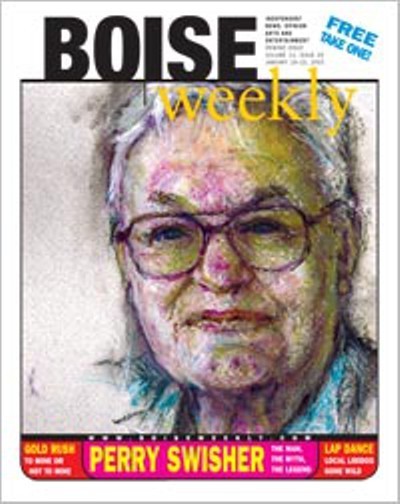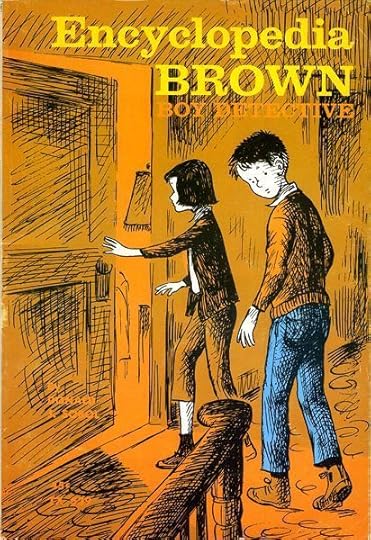Late To The Funeral
The days when I need to check the news for the deaths of friends and heroes have snuck up on me. I thought I still had several decades to go, but apparently not. Over the past couple weeks, I’ve been surprised by the passing of people I now realize I thought would live forever.
The first was Perry Swisher, and I owe him better than this long-delayed note. Perry was larger than life in every way. He started as a reporter in Idaho when many people there didn’t have indoor plumbing, and his honest and often scathing journalism got him more than a few threats to leave town before sundown. From there, he went into politics, and was one of the legislators and public officials who dragged my home state, kicking and screaming, out of the Old West and into the 20th Century. He was an advocate for civil rights, supported a massive push to improve the state’s public schools, and, at a time when most guys his age would joke about having problems with the VCR, argued for broadband Internet access as vital to Idaho’s economy.
He also, famously, once threatened to take an axe to the power cables at a public concert that had gone on late into the night. It wasn’t that the music was keeping him awake — he had to change into his pajamas for dramatic effect. But it was rude, and it was loud, and it pissed him off. It wasn’t neighborly. So he got out his axe, probably well aware he was burnishing his legend at the same time.
He was a friend, and he took the time to school me in politics and journalism when I needed it desperately as a reporter starting out at Boise Weekly. We’d argue occasionally — especially about the fight to bring nuclear waste into Idaho for storage — but I was always aware I was coming to these gunfights unarmed. And though Perry could yell and shout, he’d always show up again, and grumble, “Come on, Farnsworth, I’ll buy you a cup of coffee.”
He was the genuine article. Smart, tough, honest, and brave. I’m grateful he took the time to tell me a thing or two about a thing or two.
***
Just this week, I was surprised again by the deaths of two other writers — men I didn’t know, but who had very big impacts on me at very different stages in my life.
Donald J. Sobol, who wrote the Encyclopedia Brown series of mysteries, died on July 11. I admit, I haven’t kept up with the adventures of Leroy Brown the way I once did, but for a while, I devoured every one of the books as soon as I could find it. I still have the original box of paperbacks my mom got me as a starter set. For those who were unlucky enough to go through childhood without reading these books — there may be one or two of you out there — the premise was simple. Encyclopedia was an unbelievably smart kid who helped his father, a small-town police chief, solve cases. And on his own time, he ran a detective agency out of his garage. He made me believe that justice could be served for 25 cents a day plus expenses.
Encyclopedia exists in a special, unchanging corner of the universe. He has not been supplanted by Wikipedia. Inflation has not affected his rates. His friends still do things like go to soda shops and race soap-box derbies. And I’m glad for that. I once pitched an Encyclopedia Brown script to a production company that held the rights to the stories. (Nothing ever came of it, which was pretty much the usual result for my pitches.) I was thrilled for the chance, but I didn’t really see any way to improve the idea. To me, having Encyclopedia bust drug smugglers, or break into crime-solving raps, or, God forbid, go full Watchmen and have to deal with the grim and gritty underbelly of Idaville would be completely beside the point. His mysteries were all manageable ones. The crimes he confronted were ordinary, and they were proof that most crooks were just not very bright. Encyclopedia showed me that being smart was not a liability: it was an adventure in an otherwise mundane world.
I’m glad I kept my original books — they were some of the few that survived my college-age purge of everything I loved when I was a kid. Now I know I’ve got them, and can pass them on to my daughters, who will hopefully feel the same love, even if they have no idea why this kid doesn’t just use the Internet.
***

Photo of Alex and Jasper by Tao Ruspoli
I only heard yesterday about the death of Alexander Cockburn, and was shocked to discover his age when I read the first line of the first obit. Seventy-one. It didn’t seem possible. He had nothing but energy on the page.
A proud radical, Cockburn loved argument. His endlessly fluent, laughing prose was a far cry from the dour and miserable leftist stuff that I read in college. While other writers complained and moaned about the unfairness of it all, the big mean insults of the patriarchy or the hegemony and the need to put everything in brown paper bags which were of course the most ecologically sound form of packaging, Cockburn’s words were slashing, bright, and above all, happy. He was having an absolutely great time pissing off the powers that be, and had no patience for anyone, left or right, who stuck like mildew to bad ideas. As Paul Rubin says here, he spared no one.
He has been much compared to his one-time friend Christopher Hitchens. Like Hitchens, he could argue endlessly and eloquently. But Hitchens was a much more public figure. As James Wolcott says in this remembrance of Cockburn, they were both literary celebrities once, dating heiresses, showing up at the best parties, all that. But Cockburn took off for the hills, and founded a radical newsletter while living in Northern California. He still never lost his talent for pissing people off. There was something in his views to offend everyone, no matter where I’ve lived, from the deeply Republican territories of Idaho to the well-off, politely liberal Westside of L.A. He supported Ralph Nader and scorned Gore for a corrupt fool. He argued vehemently and passionately against Bush’s wars and the drug wars, but was also suspicious of abortion, and considered Clinton a smiling huckster. He supported a flat tax and never once apologized for being a socialist. He was called an anti-Semite and an apologist for Stalin. His latest heresy was arguing against global warming. (Which, while I disagree, did not really surprise me. I remembered that he also argued against recycling as a way to scam people into sorting trash for free for private corporations.)
In short, there was something for everyone in his work, and it was always a pleasure to read him. This is one of his last speeches on the current health of the American experiment. He has harsh words for Obama and Romney and kind words for Gerald Ford and calls for the death penalty at one point, and yet, he’s funny and gracious and human. (He and Perry would probably have had a blast together, if they had ever met.) More of us could use more of what was in him.
 newest »
newest »
 LOVED Encyclopedia Brown. Couldn't get enough of Sobol's stories when I was a kid. Naturally, I tried to pass them along to younger sibs and now, my nieces. I've had a bit more luck with Judy Blume. Ah, well. Maybe I'll have a bookworm of a nephew some day, and he'll appreciate a polite, smart kid with great observational powers.
LOVED Encyclopedia Brown. Couldn't get enough of Sobol's stories when I was a kid. Naturally, I tried to pass them along to younger sibs and now, my nieces. I've had a bit more luck with Judy Blume. Ah, well. Maybe I'll have a bookworm of a nephew some day, and he'll appreciate a polite, smart kid with great observational powers.





